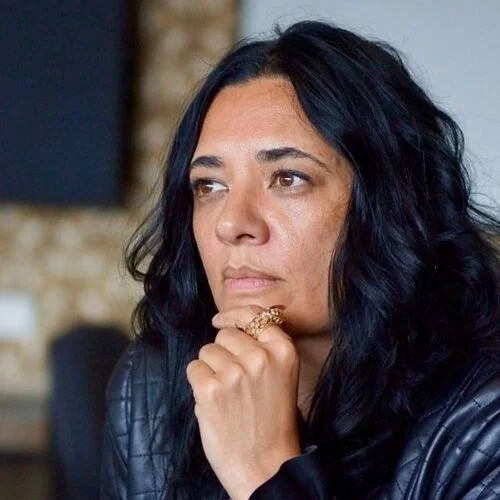Tania Pouwhare
2019 Cohort
Tania is disrupting dominant economic discourse by demonstrating how entrepreneurial public servants can shape markets and enable just, inclusive, circular and regenerative economic development for the Māori and Pasifika urban diaspora.
Tania is from the Ngāi Tūhoe tribe in the Bay of Plenty, Aotearoa, and is currently residing in Tāmaki Makaurau Auckland. She is Acting General Manager, Social and Economic Innovation at Auckland Council.
Tania's focus is on radically re-imagining and demonstrating economic development that is just, inclusive, circular and regenerative, and where prosperity is equitably shared with the citizens of south and west Auckland, and Māori and Pasifika peoples in particular.
After working in policy and strategy roles in women's rights NGOs in Aotearoa and then London, Tania returned to Auckland in 2011 to take up a strategy role at Auckland Council. There she focused on community and social strategy, before becoming a Social Intrapreneur in the council's social innovation team, The Southern Initiative (TSI), where she led the department’s portfolio of economic development work. Tania is currently the acting General Manager of the department, although she still plays an active role in flagship economic projects. As well as being a senior Atlantic Fellow, Tania is an honorary fellow of Engineering NZ and a member of the Māori Economic Development Advisory Board and Te Kāhu Mātai WorkSafe Partners Council, and several other national reference groups focussing on Māori economic equity, protection and prosperity.
Social change project
My vision is an equitable and environmentally sustainable local economy. Tāmaki Makaurau is the country’s economic powerhouse, but it is a tale of two cities; Māori and Pasifika have borne the consequences of successive economic and social policy failures, largely experiencing life as victims of economic change rather than protagonists. It’s morally and economically unacceptable that 27% of the country’s largest city is being left behind. The inertia must be short circuited and that’s why I’m progressing the idea of a Green New Deal, an economic reset to strengthen our social fabric and protect and regenerate our natural world at the same time.
What AFSE changed
Being part of AFSE has enabled me to set a trajectory that wouldn’t have happened otherwise. Not only have I changed tact in what we are practically designing and implementing in our economic development portfolio, I actively consider how it connects with global movements, particularly those of other Indigenous peoples.
Next steps
The circular economy business park is the most audacious and ground-breaking initiative I’ve led in my career, and a flagship of our Green New Deal approach. The project sits at the intersections of social equity, biosphere sustainability and the fourth industrial revolution, but what makes it special is that this major economic initiative is led by Māori and Pasifika peoples and our unique Polynesian indigenous epistemology.

